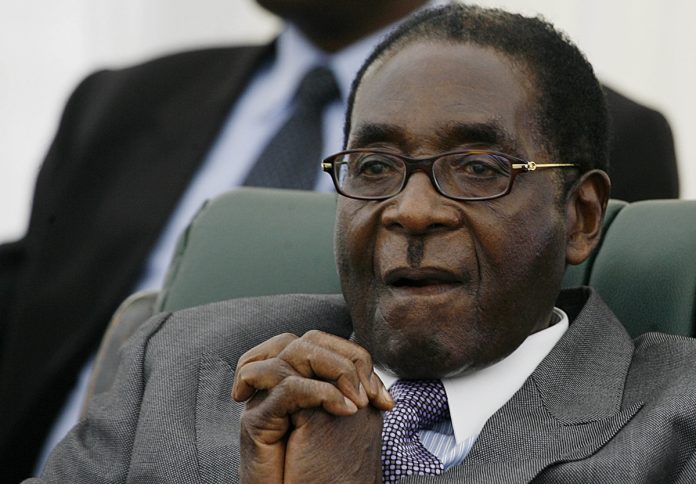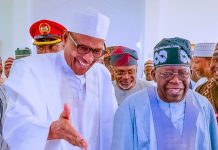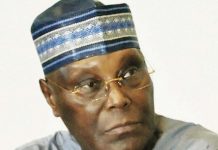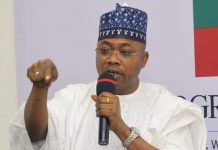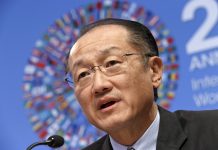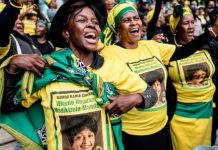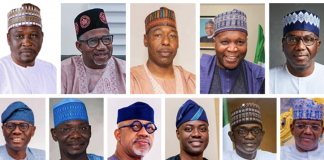Political analysts who are eager to count the Zimbabwean leader, Robert Mugabe, as down and out, should tarry awhile. Those who believe the impression created by the foreign media that the old man goes to international gatherings simply to doze off do not understand Mr. Mugabe. The renowned freedom fighter is a strategist. He looks for the slightest opportunity to play his ace.
Yes, that is what his latest Cabinet reshuffle says about him. President Robert Mugabe this week moved Patrick Chinamasa from the Finance ministry to lead a new Cyber security ministry that will focus on crimes on social media and other websites ahead of an election due next year. Mr. Chinamasa is being replaced at the Treasury by Home Affairs Minister Ignatius Chombo in a cabinet reshuffle that seems calculated to diminish the role of Vice President Emmerson Mnangagwa, seen as a potential successor to President Mugabe.
In all, 10 cabinet ministers changed posts while two were dropped entirely.The Cabinet changes, announced in a government statement, comes against the backdrop of a severe hard currency shortage that has dealt a fresh blow to confidence and investment in the southern African economy, which uses the US dollar. Mr. Chinamasa was appointed finance minister after President Mugabe’s re-election in 2013 and his deployment to the new Ministry of Cyber Security, Threat Detection and Mitigation was unexpected.
The new portfolio emerged after Mr. Chinamasa said last month the government would now treat social media as a security threat after accusing users of spreading rumors about shortages of basic goods, which caused panic buying and price increases.
The government has been uneasy with social media after activists such as Pastor Evan Mawararire and his movement last year used social media to organize a stay-at-home demonstration, the biggest anti-government protest in a decade. Government critics took to social media to deride Mr. Chinamasa as new “Minister of Twitter, Facebook, Instagram and WhatsApp affairs” .Mr. Chinamasa, a lawyer by training, will also be responsible for bringing to parliament the long awaited cyber crimes bill that will criminalize false information posted on the internet, revenge porn, cyber-bullying and online activity against the government.
But many observers wonder why Mr. Chombo, who does not have a finance background should be picked for that sensitive ministry. His main qualification is that he is a staunch Mugabe supporter who comes from the 93-year-old leader’s rural home district. Some insiders also see him as the surprise pick for the finance portfolio.
Mr. Chombo’s immediate task will be to crack his brains about how to deal with a serious shortage of foreign currency that has seen US dollar bank balances lose value against cash dollars, fuelling a thriving black market. The worthless Zimbabwe dollar was replaced by the US dollar in 2009 but the economy has struggled over the past 18 months because of a massive domestic shortage of dollars.
The situation has caused crisp, new, $100 bills, to continue enjoying a steady 10 to 20 percent premium over dollars stored electronically in bank accounts – nicknamed “zollars” – meaning people have to transfer more than face value to the person selling the dollars on the black market.
President Mugabe had hinted last week of the Cabinet reshuffle when he said it was time to review the performance of his ministers. It was widely speculated that Mr. Mnangagwa would be adversely affected by the turn of events.
Mr. Mnangagwa has since lost favour among the ruling party faction that accused him of seeking to force Mugabe to resign on account of his age and poor health. The ZANU-PF is divided into two camps, one supporting Mr. Mnangagwa to replace President Mugabe and another rallying behind First Lady Grace Mugabe.
Mr. Mnangagwa, who has denied all the accusations, lost oversight of the Justice Ministry to the head of Zimbabwe’s spy agency, Happyton Bonyongwe, a retired army general. The former head of the national intelligence agency for 15 years will be responsible for new legislation and will supervise the election due next year, including the decision on the type of foreign observers that would monitor the polls.
It is now public information that the 93-year old President Mugabe, who has ruled the former British colony since independence in 1980, plans to run for another 5-year term next year.






